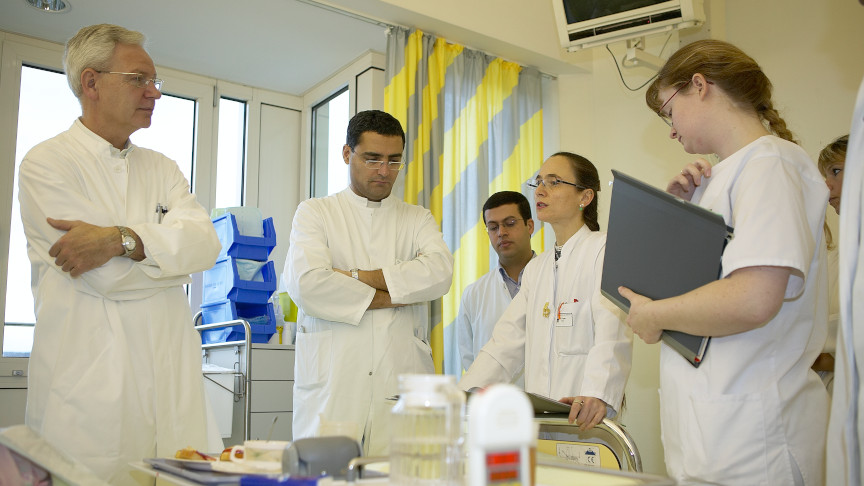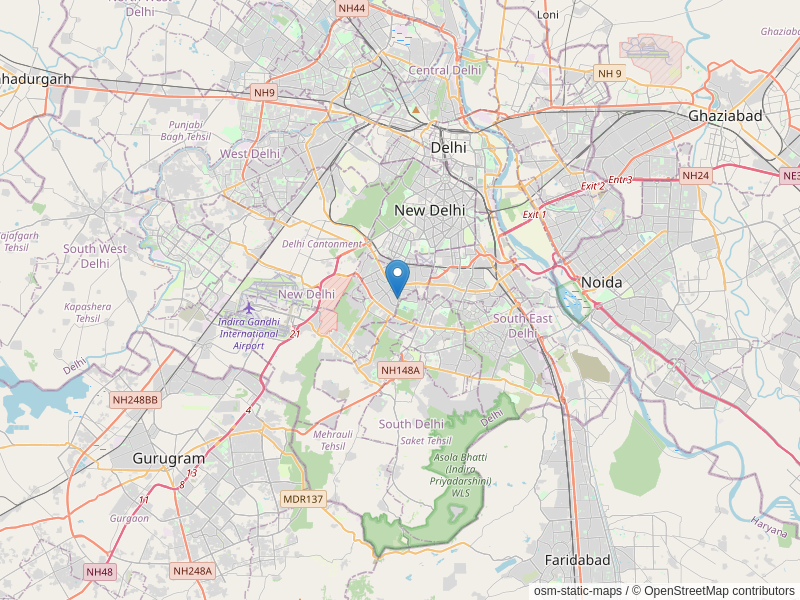After MBBS...

The MBBS degree from India is not considered equivalent to the basic medical qualification in Germany. If one wants to practice as a medical professional in Germany, one needs to go through various stages of medical studies and examinations that enable one to take the necessary license (Approbation) to practice in Germany. This necessitates solid proficiency in German language in order to be able to follow lectures and eventually to talk to patients. After getting the license, one may work as a doctor in Germany.
The following table offers an overview of the structure of medical education in Germany:
| Stage | Duration | Concludes with | |
| 1 | Pre-clinical Phase Covers fundamentals of natural scientific and medical study |
2 years | Intermediate Medical Examination (Physikum) |
| 2 | Main Phase (Stage I & II) Covers core subjects through lectures, practicals, internships and seminars |
1+2 years | Stage I & II Medical Examinations by the State |
| 3 | Practical Phase (Stage III) Covers clinical training; surgery, internal medicine, elective Berufserlaubnis (‘temporary’permit to work as a doctor under supervision) for maximum 2 years |
1 year | Stage III Medical Examination by the State |
| 4 | Approbation | Medical License | |
| 5 | Facharzt (Specialisation) | 5-6 years | Approbation as Facharzt/Specialist |
The Indian MBBS degree is commensurate approximately with Stage II of Clinical Studies. An Indian MBBS degree holder can therefore seek lateral entry into the German system of medical education and seek a Berufserlaubnis that is the ‘temporary permit’ that is valid for two years to work as a doctor under supervision. This phase helps one prepare for the examination, which eventually leads to the necessary license (Approbation). This examination is conducted in German language. After getting the Approbation, one is permitted to work as a doctor in Germany.
Further information on licensure and recognition of prior academic qualification
The Indian MBBS degree does not correspond to the official Medical Licensing Examination of the Federal Republic of Germany. It reflects a stage of proficiency approximately commensurate with Stage II of Clinical Studies.
Thus, as an Indian MBBS degree holder aiming at doing specialisation in Germany, you need to seek lateral entry into the German system of medical education at the third stage, which eventually leads to the necessary license (Approbation). Thereafter you can seek a seat and study for specialisation. Depending upon your specialisation, the studies take 5 to 6 years, at the end of which you can get the license to practise as a specialist (Approbation as Facharzt).
More information on becoming a medical specialist in Germany
Medical education in Germany takes place solely with German as the medium of instruction. Proficiency in the German language is thus a must. If you intend to go for lateral entry (i.e. if you are joining medical education in Germany after MBBS from India), you need to have at least B2 level of German language proficiency. Proficiency in medical German also plays an important role as you move further in your studies or career as a medical professional.
You may want to get in touch with ProRecognition, an initiative of the Federal Ministry of Education and Research.
ProRecognition
710, Nucleus Mall, 1 Church Road, Opp. Police Commissioner’s Office, Pune, Maharashtra 411001
+91 20 4104 7124
recognitionindo-german.com
www.prorecognition.in
Yes, one can carry out research right after MBBS as long as it does not involve treating or dealing with patients. With a medical practitioner’s license (after Approbation) , there are no such limitations on the research one may carry out.
Research takes place at institutions of higher education and non-university research centres. More information about research in Germany is available here.











